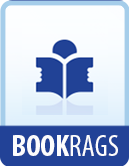9th. Up, and to the Office, but did little there, my mind being still uneasy, though more and more satisfied that there is no occasion for it; but abroad with my wife to the Temple, where I met with Auditor Wood’s clerk, and did some business with him, and so to see Mr. Spong, and found him out by Southampton Market, and there carried my wife, and up to his chamber, a bye place, but with a good prospect of the fields; and there I had most infinite pleasure, not only with his ingenuity in general, but in particular with his shewing me the use of the Parallelogram, by which he drew in a quarter of an hour before me, in little, from a great, a most neat map of England—that is, all the outlines, which gives me infinite pleasure, and foresight of pleasure, I shall have with it; and therefore desire to have that which I have bespoke, made. Many other pretty things he showed us, and did give me a glass bubble, to try the strength of liquors with.
[This seems to refer to the first form of the Hon. Robert Boyle’s hydrometer, which he described in a paper in the “Philosophical Transactions” for June, 1675, under the title of a “New Essay instrument.” In this paper the author refers to a glass instrument exhibited many years before by himself, “consisting of a bubble furnished with a long and slender stem, which was to be put into several liquors to compare and estimate their specific gravity.” Boyle describes this glass bubble in a paper in “Philosophical Transactions,” vol. iv., No. 50, p. 1001, 1669, entitled, “The Weights of Water in Water with ordinary Balances and Weights.”]
This done, and having spent 6d. in ale in the coach, at the door of the Bull Inn, with the innocent master of the house, a Yorkshireman, for his letting us go through his house, we away to Hercules Pillars, and there eat a bit of meat: and so, with all speed, back to the Duke of York’s house, where mighty full again; but we come time enough to have a good




